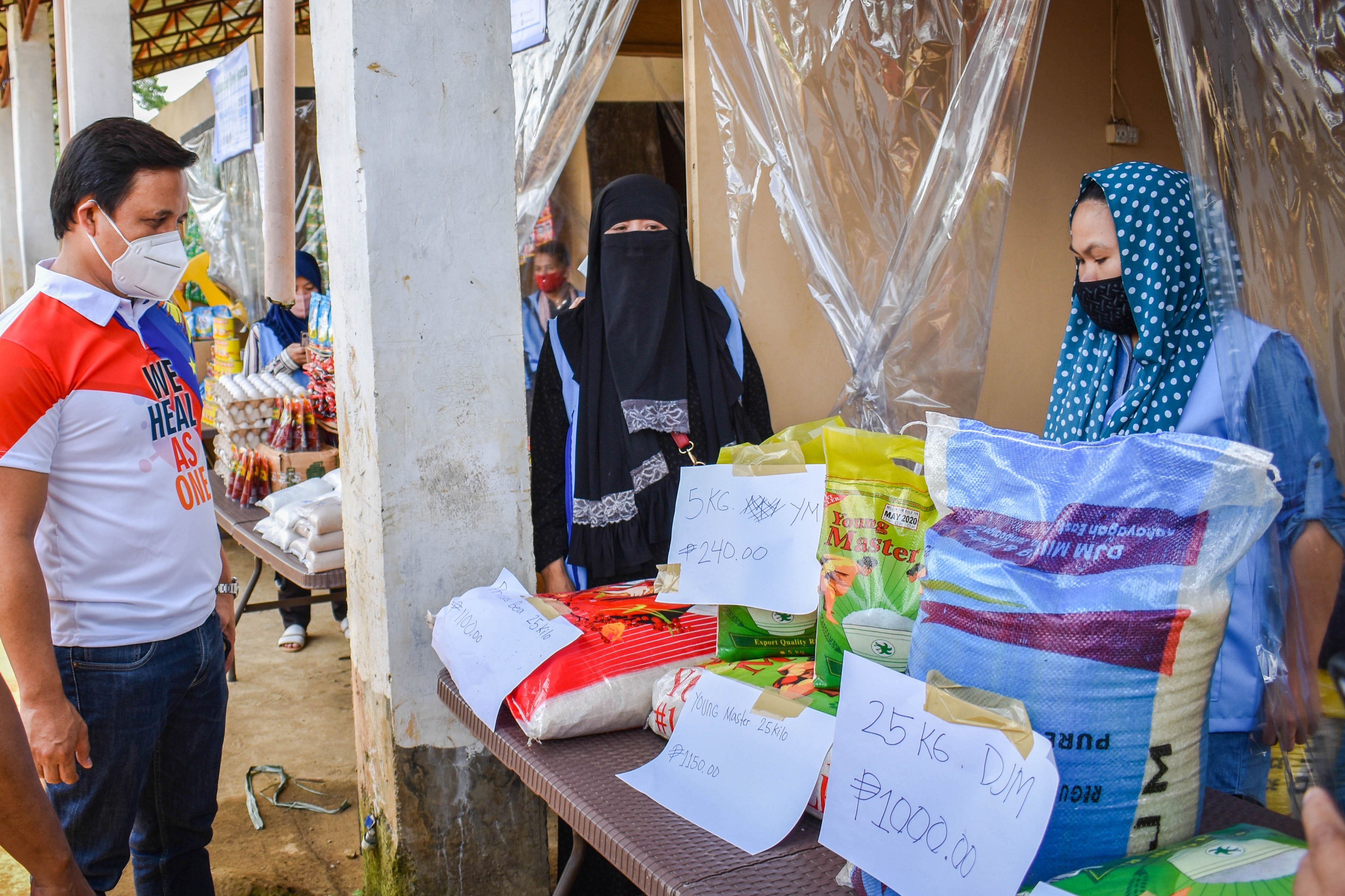Marawi City, Philippines, 27 May 2020 – UN-Habitat has opened two satellite markets and several mobile stores around Marawi City to bring fairly priced food and essential goods closer to people, particularly displaced families. This is part of the “Covid-19 Response As We Rebuild Marawi Initiative” funded by UN-Habitat’s Global Emergency Response Fund.
While some restrictions have eased, there are still limitations in travelling and transportation of goods in the Philippines which makes access to food difficult. While the impact of COVID-19 is felt across the country, it is magnified in areas recovering from conflict, such as Marawi, where in 2017 a siege by militants against Government forces displaced thousands of families.
The two satellite markets introduced under the UN-Habitat’s initiative operate daily in the barangays (villages) of Sagonsongan and Boganga, which are part of the city but far from the functioning city centre. The satellite markets serve over 2,000 internally displaced families in transit sites along with other families living there. Buying from the satellite market saves travel time and decongests central markets.
The Initiative works with cooperatives and homeowners’ associations covered by UN-Habitat’s existing post-conflict shelter project, Rebuilding Marawi through Community-driven Shelter and Livelihood, funded by the Japan Government.

These partner beneficiary groups manage the satellite markets and provide vehicles to use as mobile stores in 10 villages outside the city centre reaching hundreds of families. Rice, vegetables, canned goods, and other daily household necessities can be bought from the stores on specific days of the week.
The Initiative covers the cost for the inventory, volunteers’ allowances, transport, and other costs for the markets and stores so these will not be passed on to customers.
“We aim for families to get the food and essential items they need at the lowest cost possible, at wholesale prices with no mark-ups as UN-Habitat is already covering the other operating costs, while also eliminating transportation and other related costs when people have to go to markets,” says Christopher Rollo of the UN-Habitat Philippines office.
“In times of crisis the tendency is for prices to increase, products become more expensive. However here the price of the goods under this project is not aimed at gaining profit. Our office supports this kind of project for the contribution it provides as communities cope in this pandemic,” said Mohammad Mamainte, Provincial Director of the Ministry of Trade, Investment and Tourism of the Bangsamoro Autonomous Region in Muslim Mindanao Government.
Handwashing facilities, face masks, and observing physical distancing are followed by both customers and community volunteers/vendors
The three-month long response Initiative is being implemented in partnership with the City Government of Marawi, Task Force Bangon Marawi of the Office of the President of the Philippines, and the Marawi Sultanate League. As well as the satellite markets and mobile stores, it supports the internally displaced families in Sagonsongan and Boganga, and local families, women and youth by providing hand washing facilities, supporting small-scale vegetable growing at the household and community level and providing protective equipment and disinfectant supplies. The Initiative also supports the local authorities and the Marawi city government.